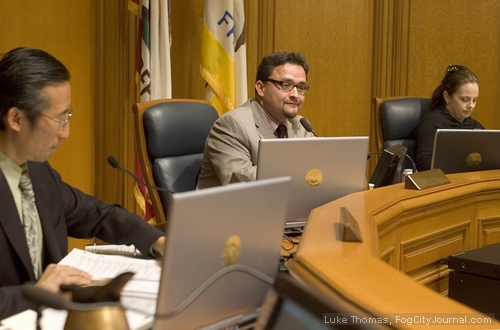
The San Francisco Rules Committee, chaired by Supervisor David Campos (center), appointed 13 members to the newly formed Medical Cannabis Task Force, May 6. Photos by Luke Thomas
By Luke Thomas
May 10, 2010
The San Francisco Board of Supervisors created the city’s first medical cannabis task force (MCTF) during a May 6 meeting of the Rules Committee.
Chartered by ordinance to advise the Board on public policy related to medical cannabis issues, the newly formed body is empowered to hold public meetings, to review medical cannabis laws – and make recommendations for changes – and to resolve conflicts and disputes within the medical cannabis community, or with neighborhood groups.
The 13-member panel is comprised of community organizers, patient advocates, hospice care workers, medical dispensary managers, cultivators, drug policy analysts, an attorney versed in medical dispensary permitting laws and regulations, and residents with ties to neighborhood community organizations.
“To me, the reason why cannabis is something that we as a city need to pay attention to, among many, but one of them is because it is a civil rights issue for so many patients who need cannabis the way that a lot of other people need other kinds of medication,” said Rules Committee Chair David Campos, sponsor of the legislation that created the task force.
Campos said there had been some initial hesitation in forming the task force, citing “division” within the medical cannabis community. “For whatever reasons, there are divisions in the community,” he said. “But one thing that I hope comes out of this meeting today, is that the cannabis community understands that, as someone said in the audience, ‘people are watching San Francisco.’”
Though Campos did not elaborate on those divisions, it is clear the task force holds within its grasp the potential to address unresolved conflicts and disputes in a constructive manner.
“Irrespective of what differences we have with one another,” Campos continued, “we have to recognize that this cannabis community will be successful, or we’ll fail together… the community has to find a way to come together.”
One such conflict was evident during Thursday’s hearing over the appointment of the eleventh seat, sought by medical cannabis cultivators Erich Pearson and Stewart Rhoads.
Axis of Love Executive Director Shona Gochenaur, who was appointed to the third seat, supported the appointment of Rhodes over Pearson because, she said, “he (Pearson) was not working very well with the entire group. He made several votes that indicated that he was not going to allow other cultivators at the table to have a vote. He voted against rotating leadership which is in the legislation currently.”
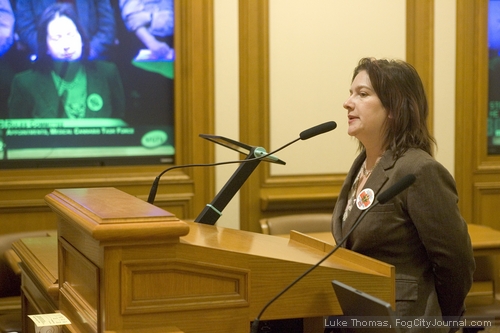
Axis of Love Executive Director Shona Gochenaur.
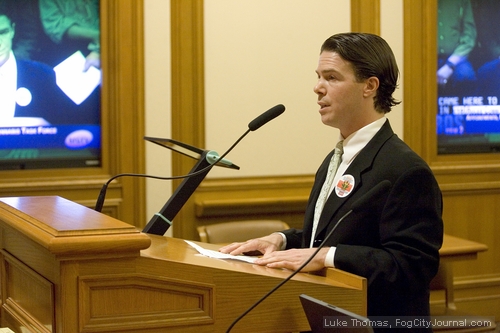
Stewart Rhoads
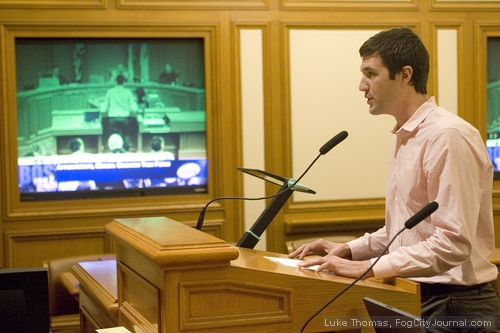
Erich Pearson
A reliable source familiar with the Gochenaur/Pearson conflict, who requested not to be sourced, alleges Gochenaur attempted to “stack the decks” of the MCTF with Axis of Love allies, a maneuver Pearson opposed. “She has also engaged in a concerted effort to malign Erich Pearson,” the source said.
Pearson, who was appointed over Rhoads to the eleventh seat by unanimous consent, declined to comment on the conflict but welcomed the formation of the task force.
The potential for the Gochenaur/Pearson dispute to harm the prospect of harmony so early in the MCTF’s infancy was effectively minimized, however, when Attorney Patrick Goggin, who has previously mediated conflicts involving Gochenaur and other members of the medical cannabis community, suggested a fourteenth seat be added to the task force to accommodate Mr. Rhoads’ candidacy. The committee agreed with Goggin’s suggestion and added a fifteenth seat to accommodate “a true neighborhoody person,” as well as to prevent the panel from deadlocking.
Rhoads and a yet unnamed fifteenth candidate will be appointed to the MCTF at a later date, the committee said.
“I think the Rules Committee made the best decision by moving for inclusion and to keep this community from fracturing right at a time when we are moving forward on doing very important work,” Goggin, who was appointed to the ninth seat, said following the meeting. “The last thing we need is a house divided.”
The full Board is not expected to oppose the appointments.
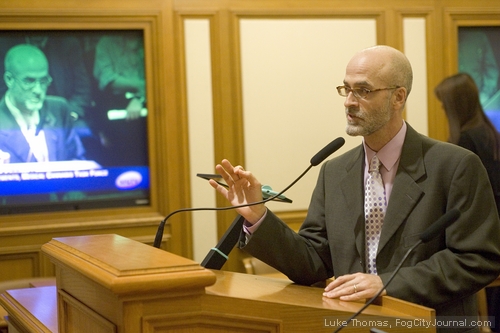
Attorney Patrick Goggin.
More Info
MCTF appointments:
Stephanie Tucker, seat 1
David Goldman, seat 2
Shona Gochenaur, seat 3
Mary Schroeder, seat 4
Raymond Gamley, seat 5
Martin Olive, seat 6
Kevin Reed, seat 7
Sarah Shrader, seat 8
Patrick Goggin, seat 9
Albert Blais, seat 10
Erich Pearson, seat 11
Michelle Aldrich seat 12
Maureen Burns, seat 13
Stewart Rhoads, (presumed seat 14)
To be determined, seat 15.



 The Hunger Site
The Hunger Site
May 12, 2010 at 3:36 am
Stewart’s right,
I pushed that in my own testimony. If 1,600 cab permits are worth 250k each (at least – 500k in NYC) then the 22 pot permits are worth millions. This task force has some really good people but like the Entertainment Commission it’s industry-stacked. I applied to bring another point of view. The City could easily make 20-25 million a year directly from sales taxes (look at tobacco) and much more than that in ancillary tourist trade.
h.
May 11, 2010 at 9:23 am
I agree with Ruth Snave.
Capitalism, not healthcare reform, is the motor that drives our politicians– whether they understand it or not.
All their cant, bluster, posturing, and rationalizations cannot convince me otherwise.
May 10, 2010 at 9:30 pm
Makes sense,
For dinner we’ll have some Louisiana shrimp with 10W40 and top it off with some Orange Kush sprinkled with paraquat. Now everybody have fun tonight. Everybody Wang Chung tonight.
Are you going to finish that?
h.
May 10, 2010 at 8:13 pm
It seems this task force is already a bit obsolete. It might have been ideal a few years ago but now that pot will likely be legalized in November, wouldn’t it have been more appropriate to expand the purpose of the task force to include discussion of laws to regulate recreational pot? They should get the jump on this thing before it’s too late.
May 10, 2010 at 7:18 am
thanks Luke,
I’ll roll my application over for the new 15th seat. This is an important group and one that I can certainly contribute to mightily.
h.
May 10, 2010 at 4:52 am
The Medical Cannabis Task Force is a front group for the cannabis capitalists. Establishing it is no different from setting up a PR front group for the tobacco industry in the Deep South, eagerly sponsored by compliant local politicians.
Marijuana does have some medical value. It should be made available to patients with acute medical problems that cannot be treated with prescription drugs.
However, the particular system of medical marijuana distribution created here in SF by the supes is a big scam.
Anhbody can get marijuana for any reason and claim that it is to treat a medical condition. There is no legislation in place for quality control.
There are no medical protocols establishing the dosages for particular diseases. Employers have been given an exemption from laws protecting workers and the environment. They don’t have to keep the records required of other businesses and don’t pay taxes.
This system is laissez-faire capitalism at its worst. Yet David Campos justifies it in the name of “progressive politics.”
I love watching theater of the absurd as much as anybody else. But the ongoing spectacles at City Hall are no longer funny, just sodden.